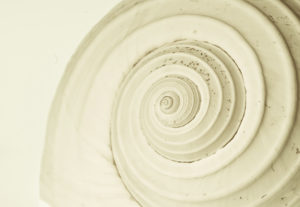We are in the eighth month of living with a declared Pandemic in the United States! By now we are well versed in the protocol; wear a mask, wash your hands, social distance and avoid indoor gatherings. Even as we wear masks and stay safely at home, we hear heart-breaking stories of seniors isolated in long-term care facilities; young people’s lives disrupted by hybrid or distance learning; exhausted parents struggling to balance their jobs and care for their children. At the same time there is the background of political unrest and economic insecurity. Whether or not we recognize it, we are undoubtedly affected by months of stress and isolation, which can appropriately be called Pandemic Fatigue.
If we take a self-inventory we may notice some or all of the following symptoms: feeling grumpy, sluggish, unmotivated, lonely, bored, worried, fearful, angry, unusually hungry or forlorn. These disturbed feelings can be like a low-grade fever that we ignore until it spikes. Covid is like an undertow, subtly lurking below the surface of our awareness. We need to recognize what’s going on with us, and name it (especially to ourselves) in order to tame it.
We don’t know the future, but it is certain that in the months ahead Covid will still be with us. The necessary protocols will feel even more restricting as we approach the deeper isolation of winter and the questions of how to celebrate cherished holidays like Halloween, Thanksgiving, Christmas, and Hanukkah.
A spiritual practice can be a significant help in dealing with disturbing feelings. A regular practice of meditation can take us to a deeper, more serene place. Thich Nhat Hanh, global leader, Vietnamese monk and Zen master is revered for his teaching on mindfulness. In a simple story from his book The Sun in My Heart, he illustrates what happens in meditation:
THANH THUY’S APPLE JUICE
Today three children came from the village to play with Thanh Thuy, a four-and-a-half-year-old child of “boat people.” After playing for a while the children came to the house to ask for something to drink. I took the last bottle of homemade Apple juice and gave them each a full glass, serving Thuy last. Her juice had some pulp in it and when she noticed the particles, she pouted, refused to drink it and went off with the other children to play. Half an hour later, while I was meditating in my room, I heard her calling. Thuy wanted to get herself a glass of cold water, but even on tiptoe she couldn’t reach the faucet. I reminded her of the glass of juice on the table and asked her to drink that first. After drinking half of it, she put it down and asked, “Is this a different glass?”
“ No,” I answered. “It’s the same one as before. It sat quietly for a bit and now it’s clear and delicious.” Thuy looked at the glass again. “It really is good, was it meditating like you?” I laughed and patted her head. “ Let’s say that I imitate the Apple juice when I sit; that is closer to the truth.” I think that Thuy, not yet four-and-a-half, understood the meaning of meditation without any explanation. The Apple juice became clear after resting awhile.
In the same way, if we rest in meditation a while, we too become clear. This clarity refreshes us and gives us strength and serenity. The added gift of a regular meditation practice is that it inevitably affects those around us and the world as a whole.
